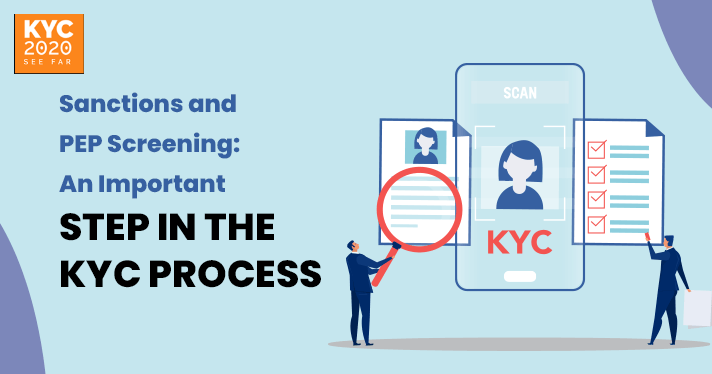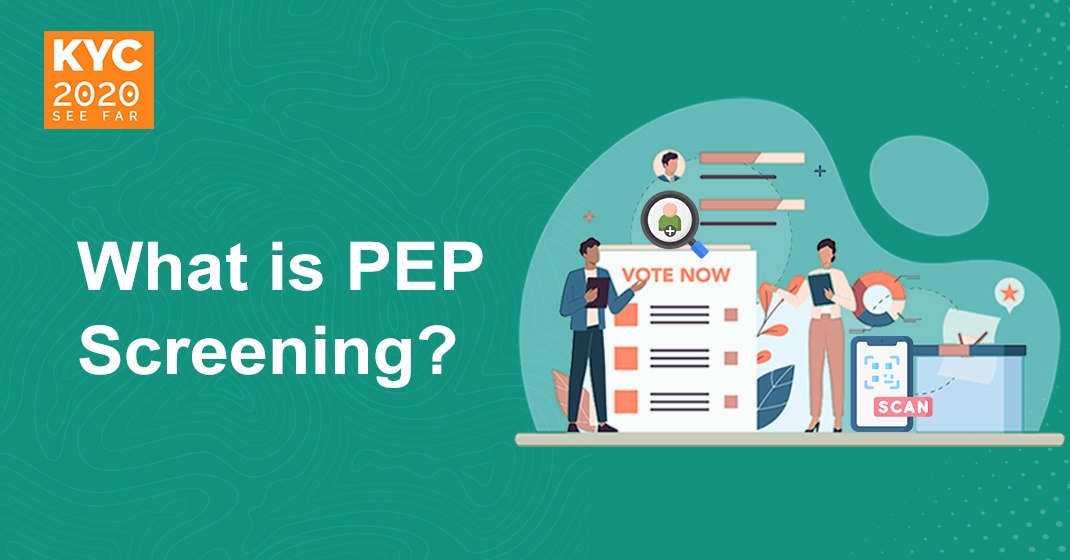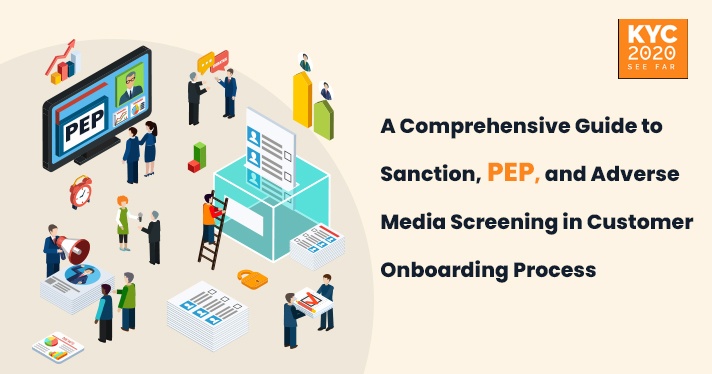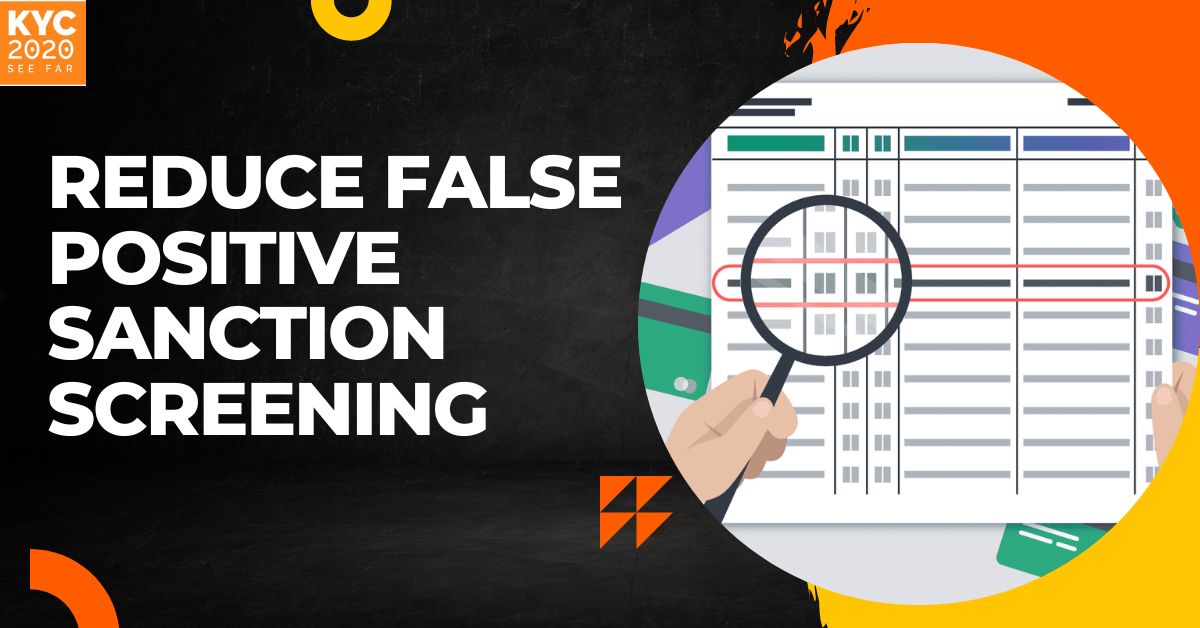In today’s increasingly interconnected global landscape, financial institutions face a constant challenge to prevent money laundering, terrorist financing, and other illicit activities. Know Your Customer (KYC) procedures have become indispensable to the financial industry to mitigate these risks. Among the essential components of KYC, two key processes play a crucial role in ensuring compliance and safeguarding the integrity of financial systems: sanctions screening and politically exposed persons (PEP) screening.
Sanctions screening thoroughly examines customer data against various national and international sanctions lists. While PEP screening identifies individuals who hold prominent public positions or have close affiliations with politically exposed roles.
Financial institutions can proactively detect and prevent financial crimes, uphold regulatory standards, and protect their reputation by incorporating rigorous PEP and sanctions screening processes into their KYC protocols. Effective screening measures ensure compliance and contribute to the overall security and stability of the global financial ecosystem.
This blog will delve deeper into the significance of sanctions and PEP screening in the KYC process. We will get the introduction to Sanction and PEP screening provided by KYC2020 and know the importance of these screening technologies in the KYC process.
Introduction to Sanctions by KYC2020
Sanctions screening plays a crucial role in the Know Your Customer (KYC) process, particularly in the realm of financial compliance and risk management. With the ever-increasing complexity of global financial transactions and the rise in financial crimes, institutions are under immense pressure to adhere to stringent regulatory requirements. KYC2020, a leading provider of KYC solutions, recognizes the importance of sanctions screening in mitigating risk and maintaining regulatory compliance.
In collaboration with regulatory bodies and financial institutions, KYC2020 offers comprehensive sanctions screening solutions to identify individuals, entities, and countries subject to financial restrictions. Leveraging advanced technology and robust data sources, KYC2020 enables financial institutions to conduct thorough and efficient screenings, enhancing their ability to prevent illicit activities such as money laundering and terrorism financing.
By integrating KYC2020’s sanctions screening capabilities into their existing KYC processes, institutions can bolster their risk management strategies, safeguard their reputation, and contribute to a more secure global financial system.
Introduction to PEP Screening by KYC2020
Politically exposed persons (PEPs) pose unique risks to financial institutions due to their influential positions and potential involvement in corruption, money laundering, and other illicit activities. Recognizing the importance of effectively identifying and managing PEP-related risks, KYC2020, a leading provider of Know Your Customer (KYC) solutions, offers robust PEP screening services.
KYC2020’s PEP screening solutions are designed to enable financial institutions to conduct thorough due diligence on customers and identify any association with PEPs. By leveraging comprehensive data sources and advanced technology, KYC2020 empowers institutions to identify and assess the risk posed by individuals with political connections, strengthening their compliance efforts and mitigating the potential for financial crimes.
Integrating KYC2020’s PEP screening capabilities into their KYC processes allows institutions to apply enhanced due diligence measures and fulfill regulatory requirements. By proactively identifying and managing PEP-related risks, financial institutions can protect their reputation, reduce exposure to illicit funds, and contribute to a more secure and transparent financial ecosystem.
What is the Importance of Sanction and PEP Screening in the KYC Process?
Below are some factors showing the importance of Sanction and PEP Screening in KYC:
Staying Ahead of Illicit Activities and Fraudulent Transactions
Sanctions screening involves cross-referencing customer data against government-issued sanction lists. These lists encompass individuals, entities, or countries subject to financial restrictions due to involvement in illegal activities, terrorism financing, or violations of international laws. Financial institutions can proactively identify and flag high-risk customers by conducting thorough sanctions screening, preventing illicit activities and potential financial crimes.
Unveiling the PEP Phenomenon and Its Impact on KYC
Politically exposed persons, or PEPs, are individuals entrusted with prominent public positions or their close associates. PEPs, due to their influential roles, pose an elevated risk for corruption, money laundering, and bribery. PEP screening involves scrutinizing customer profiles to identify any association with PEPs. This process allows financial institutions to apply enhanced due diligence measures to prevent undue influence, reputational damage, and exposure to illicit funds.
Strengthening Compliance with Regulatory Frameworks
Sanctions and PEP screening are vital compliance measures, helping financial institutions align with national and international regulatory frameworks. Regulatory bodies such as the Financial Action Task Force (FATF) and local authorities enforce stringent guidelines to combat money laundering, terrorist financing, and other financial crimes. Financial institutions implementing comprehensive screening processes meet regulatory requirements and demonstrate their commitment to upholding global standards.
Mitigating Reputational Risks and Building Trust
Maintaining a sterling reputation is essential for financial institutions to attract customers, investors, and partners. Failure to effectively screen customers for sanctions or PEPs can lead to severe reputational damage. The association with individuals involved in illicit activities or unethical practices can erode trust and result in significant financial losses. By conducting thorough screening, institutions protect their brand reputation and demonstrate their commitment to transparency and integrity.
Leveraging Technology for Efficient and Accurate Screening
Advancements in technology have revolutionized the KYC landscape, making sanctions and PEP screening more efficient and accurate. Innovative solutions powered by artificial intelligence (AI) and machine learning (ML) enable automated screening processes, reducing manual effort and increasing the speed of customer onboarding. These technologies enhance risk assessment capabilities, improve detection rates, and ensure compliance with evolving regulations.
Integrated KYC Solutions: A Comprehensive Approach
Financial institutions can adopt integrated KYC solutions to streamline the KYC process and achieve optimal compliance. These solutions encompass robust customer due diligence, automated screening processes, and ongoing monitoring of customer activities. By integrating sanctions and PEP screening into a comprehensive KYC framework, institutions can effectively identify and manage risk, enhancing their ability to detect and prevent financial crimes.
Collaboration and Knowledge Sharing for Effective Risk Mitigation
The fight against financial crimes requires collaboration between financial institutions, regulatory bodies, and law enforcement agencies. Sharing information and best practices regarding sanctions and PEP screening helps to establish a robust network that can identify emerging risks, stay updated on new sanction lists, and combat evolving threats collectively. Such collaboration ensures a collective front against illicit activities and bolsters the resilience of the global financial system.
Final Words!
Sanctions and PEP screening constitute vital components of the KYC process, empowering financial institutions to maintain and safeguard the financial system’s integrity. By implementing robust screening procedures with sanction monitoring, leveraging technology, and fostering collaboration, institutions can stay ahead of evolving risks, protect their reputation, and contribute to a more secure and transparent financial ecosystem.








